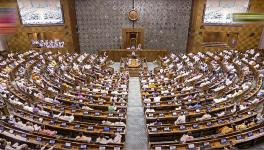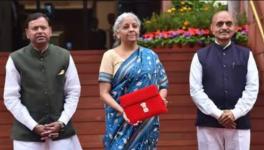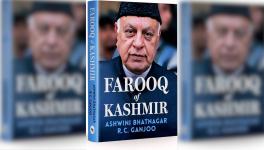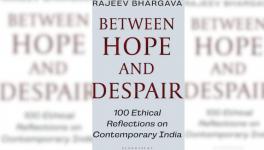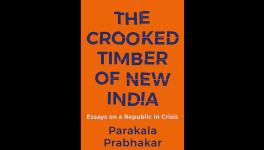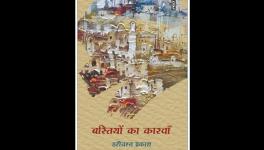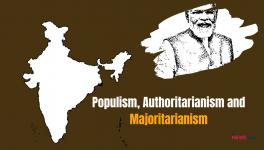Is Populism any Different from Majoritarianism?
Populism has emerged as the most significant political phenomenon of contemporary times, but there is little agreement on its possible consequences for democracy. The contentions over populism emerge from the gap between the idiom it works within and the visible effects of its workings. An obvious first question is whether populism is necessarily authoritarian and majoritarian in its content—or can it also lean towards a more inclusive democratization. Does populism foreground, at the heart of its operative logic, a new set of terms beyond the limits set by liberal democracy? Do these terms compel us to think of democracy differently, or do they simply produce authoritarian tendencies that undermine democratic participation? Put simply, is populism any different from majoritarianism?
Prasanta Chakravarty’s edited book, Populism and its Limits: After Articulation, published by Bloomsbury, attempts to delve into this complex labyrinth; reading the signposts of the idea of “the people” and constructing an authentic constituency unmediated by the niceties of liberal constraints. In remaining unmediated, does populism represent an organic and authentic voice of “the people” or does it merely remain strategic and instrumental; and therefore progressively liable to be exposed for being rhetorical and manipulative? Finding a legitimate answer to what appears to be a simple question becomes difficult because populism works in universal normative registers at one level and maps itself unto the everyday ethics and vulnerabilities of “the people” at another level.
Political leaders donning populist rhetoric seem to “think like” the people they represent, while the secular-progressive Constitutionalists seem to “think about” the subaltern. In “thinking like”, populists not only communicate in local and everyday cultural idioms, but are more comfortable in acknowledging the vulnerabilities, lies, ethical frailties and even prejudices that social and collective life is constituted by. What does “representing” the social muck really constitute? Does it merely engrave and impose hegemonic dominant ethos or, in contrast, actually provide a legitimate space for limitations of the “human condition”, beyond the frames of civility and cosmopolitanism that liberal-citizenship project pursues? Is the polarisation that populism brings organic, from below, or is it superimposed from above after having strategised around everyday symbolism?
Chakravarty’s book suggests a “third way” out in pitching for “thinking along” with “the people”, avoiding the binary of “thinking like” and “thinking about”. He acknowledges that while “thinking about” has familiar tropes of elitism and patronage, “thinking like” can be a zero-sum game which closes space for dialogue and deliberation that democracy needs. By contrast, “thinking along” can mean carefully nudging popular consent. Chakravarty’s introduction is deeply concerned about how one can “get back to sustained, slow, differentiated and constructive teamwork that relies on a common political language instead of prolonging a raging fervour into nothingness? Perhaps, that would once again require the act of mutual listening and a gradual, painstaking process of constructing from scratch”. (p.17).
This is where the book highlights the limits of populism. Even what has popular consent need not be endorsed as legitimate, but the question still remains—where does this externality of “thinking along” come from and where is it positioned so that it weans it away from “articulation” of social power? Is there an ethical space to this externality, and also a force that can make it more authentic and effective to counter the claims and optics of populist overtures, especially when populist strategies are effective precisely for being inauthentic and pragmatic?
Unless one theorizes the proper place for incivility and a range of emotions including envy, rage, anger and anxiety, one cannot but contribute to a closure that could be liberal, but not necessarily democratic and inclusive. For instance, one does not fully understand the place of crime in popular politics: what constitutes crime, as differentiated from rage and protest, and what is its proper relation with “pure politics”? Is crime the marker that sufficiently differentiates the crowd from the multitude?
Questions have to also be asked of liberal institutions. Where does the social gestation necessary for institutional functioning and procedures come from other than social privilege and individualism? Similarly, where do revolutions come from when they are said to be part of a historical and material logic, yet constitute a rupture? Does this not constitute a foundational self-contradiction that later contributes to the failure of revolutionary societies and marks them as “totalitarian”? Liberalism works itself “as if” societies are civil and equal, and aim to achieve the goals of liberty, equality and fraternity through it’s “as if” functioning of the civil sphere. Populism, in contrast, to the “as if” imaginary works as a more direct and authentic version of political mobilisation.
While the caution suggested in the book in pointing to the limits of populism is well taken, it does not necessarily offer us a way out. But it definitely opens a dialogue on whether or not we have a real-time chance of
thinking along” and whether that is necessarily the only way of coming out of the populist impasse.
The author is associate professor, Centre for Political Studies, JNU. The views are personal.
Get the latest reports & analysis with people's perspective on Protests, movements & deep analytical videos, discussions of the current affairs in your Telegram app. Subscribe to NewsClick's Telegram channel & get Real-Time updates on stories, as they get published on our website.









